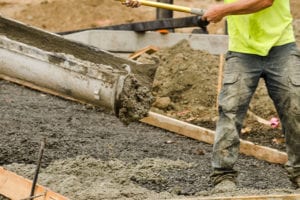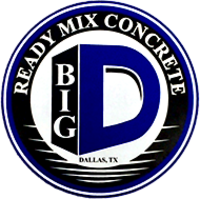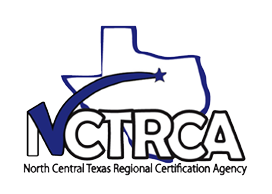Everything You Need to Know About Concrete Strength
Concrete is one of the most robust and durable building materials used by humans since the ancient era. But there are numerous ways to assess the overall strength of concrete. The most crucial factor is that these strength properties add different qualities to concrete, making it an ideal choice for professional builders in various use cases.
Today, we will look at all the different types of concrete strengths, why they matter, and how they will impact the overall longevity, quality, and cost of the project.

Properties of concrete strength and why are they important?
Compressive strength of concrete
The most well-accepted and standard measurement of concrete strength that helps builders assess the overall performance of a concrete mix is its compressive strength. It assists professionals in measuring the ability of concrete to withstand tremendous loads that will decrease the size of the concrete.
Professionals measure the compressive strength of concrete by breaking cylindrical concrete specimens in a machine built to measure this kind of strength. Measuring the compressive strength of concrete is critical since it is the crucial criterion to determine if a given concrete mixture meets the requirement of a specific project.
PSI strength of concrete
Psi (pounds per square inch) helps builders measure the comprehensive strength of their concrete. A higher PSA level suggests that a given concrete mixture is firm, making it ideally more expensive. However, these strong concretes also provide you with excellent durability, meaning they will last long. The perfect concrete psi for a construction project depends on numerous factors, but the minimum for any project ideally starts around 2500 to 3000 psi.
Concrete slabs and footings typically require a psi level of 3500 to 4000. suspended beams and slabs require 3500 to 5000 psi. Concrete walls and columns can range anywhere from 3000 to 5000 psi, and concrete pavements require 4000 to 5000 psi. Keep in mind that concrete structures with built-in cold climates often require a higher psi level to withstand more thaw/freeze cycles.
The compressive strength of concrete is usually tested in seven days and then again after 28 days to find out the correct psi level. The first test determines its early strength gains and can even be performed on the third day. However, the psi level of a concrete is determined from the 28-day test.
Tensile strength of concrete
The tensile strength of concrete is its ability to resist cracking or breaking under tension, and it affects the total size of cracks in the final structure and the overall extent to which they can occur. Keep in mind that these cracks develop when the tensile force exceeds the total tensile strength of the concrete.
Traditional concrete tends to have a significantly low tensile strength when compared against compressive strength. This means that any concrete structure that needs to undergo any tensile stress needs to be reinforced with materials with better tensile strength, such as steel.
It is very challenging to test the tensile strength of any concrete directly, so professionals often use indirect methods. The most common indirect methods professionals use when building a concrete structure are flexural strength and split tensile strength.
The tensile strength of concrete is determined using the split tensile test on concrete cylinders. This test, however, needs to be performed according to the ASTM C496 standard.
Flexural strength of concrete
Flexural strength is an indirect method to measure the tensile strength of concrete, and it is defined as a measure of an unreinforced concrete beam or slab to resist failure when bending. In other words, it helps you determine the ability of the given concrete structure to resist bending.
Flexural strength ideally ranges anywhere from 10 to 15% off the compressive strength of concrete, depending upon the specific mixture you are working with. Always remember that flexural strength is sensitive to the preparation of concrete, handling, and curing. You must conduct this test while the specimen is still wet. Because of these reasons, results you get from comprehensive strength tests tend to be more useful when describing the overall strength of a concrete structure, as these figures are much more reliable.
Additional factors
Now let’s take a look at a few other factors that contribute to concrete’s overall strength.
Water to cement ratio
A lower water to cement ratio in concrete can give you a strong result. However, it also makes the concrete challenging to work with. A professional builder must find the right balance of water to cement ratio to achieve the desired results.
Proportioning
Traditional concrete includes water, air, cement, and an aggregate mixture of gravel, sand, and stone. The right proportion of these items is critical for achieving higher strength of concrete.
Mixing
It is imperative to achieve optimum mixing time if you wish to develop strength. While strength increases with mixing time to a specific limit, mixing for too long may result in extra water evaporation and fine particles within the concrete mix. This will make the concrete much harder to work with and less robust at the same time.
There is no rule for optimal mixing time since it depends on numerous factors such as the speed of mixer rotation, the type of mixer used, and the specific materials and components within a given batch of concrete.
Curing
The longer you keep concrete moist, the stronger it will get. To adequately protect your concrete, you need to take precautions when curing concrete, especially in extremely cold or hot temperatures.
Want more information about concrete? Get in touch with Big D Ready Mix today!
For years, Big D Ready Mix has been at the forefront of the ready mix concrete business, so we understand everything related to concrete.
If you feel like you need more information regarding concrete or are hoping to get in touch with a professional ready-mix concrete dealer in the Dallas/Fort Worth area, you can contact our team at 972-737-7976 right away or contact us online. We’re always happy to help.
Looking for the best ready mix concrete supplier in Dallas, TX?
Big D Ready Mix Concrete offers you high-quality concrete products and excellent service!
Sister Companies


Our Certifications

Small Business Enterprise
Women Business Enterprise
Disadvantaged Business Enterprise
About Us
Big D Ready Mix Concrete has been serving clients in the Dallas, TX area since 2002, with over 400 utility mixes, high-strength wall mixes, exposed aggregate mixes, flexural strength mixes, stamp concrete mixes, flowable fill mixes, grout mixes, and trailer pump mixes.
Contact Information
10361 Bickham Rd
Dallas, TX 75220
(972) 737-7976
Email Us
Monday-Saturday 5am to 6pm
Dispatch Hours: Project Dependent